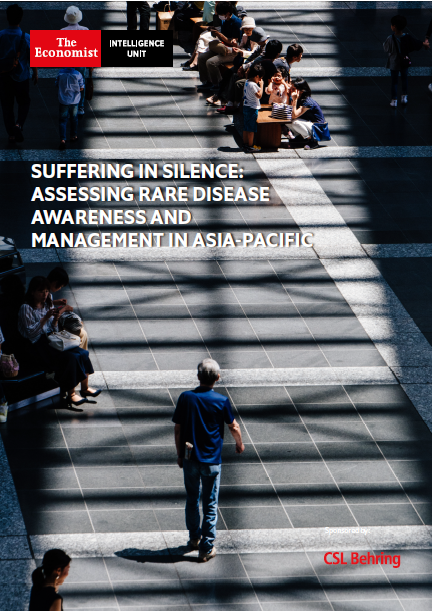The Economist Intelligence Unit published a report Thursday, analyzing challenges for awareness and management of rare diseases in five countries in the Asia-Pacific region, with the support of CSL Behring.
The report, “Suffering in silence: Assessing rare disease awareness and management in Asia-Pacific," stressed such factors as an accurate diagnosis in proper time, improved financial support level, and enough consideration of non-medical aid, to improve the management of rare diseases. The five countries surveyed for the report are Australia, China, Korea, Japan and Taiwan.

About 6,000 to 7,000 rare diseases exist worldwide, and 285 million people suffer from them in the Asia-Pacific region. Nearly half of them are pediatric patients. In Korea, 1,038 rare diseases are registered for medical expenses support programs, and more than 250,000 patients receive medical benefits.
Medical workers who responded to the survey said that two out of three patients with rare diseases could not receive treatment due to the lack of standard medical guidelines, approved drugs, and financial supports for diagnosis and therapy.
Ahn Yun jin, head of the Rare Disease Department at the Korea Centers for Disease Control and Prevention, said that the interest has been increasing steadily since the Rare Disease Management Act was established in 2015. However, there are still many problems to be solved to improve the environment to treat these patients.
"I believe Korea has a high public interest and policy standard to improve the treatment environment for rare diseases," CSL Behring Korea General Manager Son Ji-young said. "Nevertheless, we also feel responsible for the unmet demands confirmed through the report, and we are glad that the report was also published in Korea."

